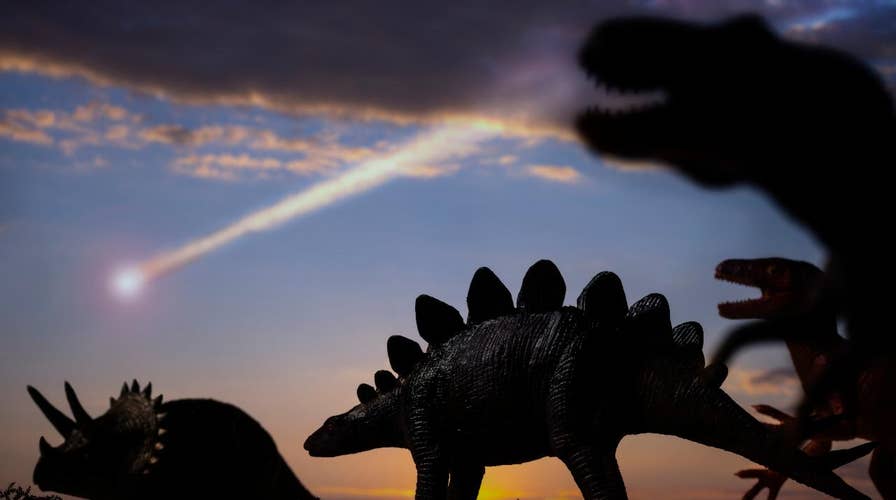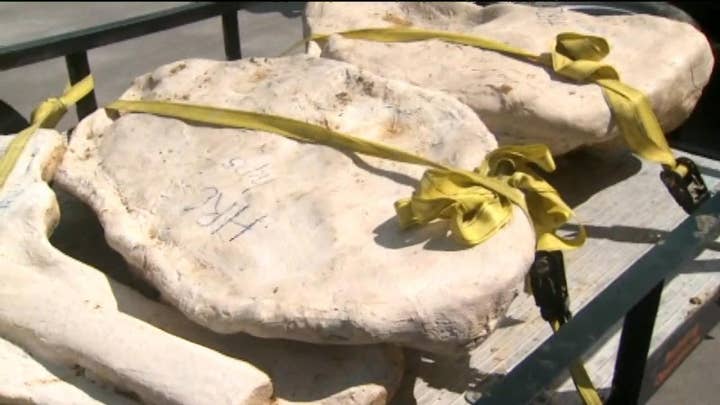What really killed the dinosaurs?
New studies suggest that it may not have only been an asteroid that wiped out the dinosaurs.
Scientists claim to have found the remains of a dinosaur that was killed on the day a massive asteroid struck Earth 66 million years ago.
The dinosaur leg was reportedly preserved as debris from the impact rained down.
THE ROCK'S VIRAL MOMENT DURING NFL PLAYOFFS HELPS DINO EXPERT CRACK T-REX MYSTERY
"We've got so many details with this site that tell us what happened moment by moment, it's almost like watching it play out in the movies. You look at the rock column, you look at the fossils there, and it brings you back to that day," Robert DePalma, the University of Manchester graduate student who leads the Tanis dig in North Dakota, told BBC News on Wednesday.
The network has spent three years filming there for a show that's set to air in just over a week.
Along with the leg, researchers said they found fish, a fossil turtle, small mammals, skin from a triceratops, the embryo of a flying pterosaur and a fragment from the asteroid.
The network said the remains have been jumbled together, with spherules linked to the impact site off the Yucatan Peninsula.
Particles from tree resin contained inclusions that "imply an extra-terrestrial origin."
T. REX MIGHT ACTUALLY BE THREE SEPARATE SPECIES: STUDY
Professor Paul Barrett, from London's Natural History Museum, looked at the leg and deemed the dinosaur a scaly Thescelosaurus.
Some scales are featured in a video previewing the exclusive.
The limb, he noted, looks like it was "ripped off really quickly," suggesting that the creature died "more or less instantaneously."
The question remains: Did it actually die on the exact day?
One professor told the BBC he wants to see more peer-reviewed articles and additional independent assessments.
CLICK HERE TO GET THE FOX NEWS APP
"Those fish with the spherules in their gills, they're an absolute calling card for the asteroid. But for some of the other claims – I'd say they have a lot circumstantial evidence that hasn't yet been presented to the jury," professor Steve Brusatte, from the University of Edinburgh, said.






















